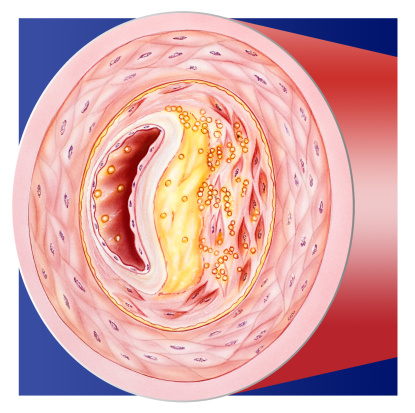 What you’ve been told about cholesterol is a myth. This outdated story has been irresponsibly propagated for decades and it’s keeping you sick. Your life is being cut short by this lie and it’s time you knew the truth.
What you’ve been told about cholesterol is a myth. This outdated story has been irresponsibly propagated for decades and it’s keeping you sick. Your life is being cut short by this lie and it’s time you knew the truth.
The Cholesterol Myth Tells You:
♦ Eating foods that are high in fat cause your cholesterol levels to increase.
♦ High cholesterol levels in your blood are what clog your arteries and therefore cause heart disease.
♦ Lowering your cholesterol levels to below 200 will decrease your risk of dying of a heart attack.
♦ Following a low fat diet and switching to unsaturated vegetable oils is healthy for you.
♦ If you can’t lower your cholesterol levels on your own, then cholesterol lowering statin drugs are the only thing that will save your life.
The Cholesterol Truth Is:
♦ Cholesterol is NOT the cause of heart disease.
♦ High cholesterol is merely a symptom of a much more pervasive danger to your health.
♦ Too much saturated fat is not what gives you a heart attack.
♦ Low fat diets and polyunsaturated fats can actually make your health problems worse.
♦ The real underlying cause of heart disease is not being talked about and that is why heart disease is still the #1 killer in the United States.
♦ Statin drugs do not work with the root cause of heart disease, therefore at best, they are only covering up a symptom (and are probably making you sicker).
♦ Lowering your blood cholesterol levels too low can be harmful to your health.
♦ There is a natural method of addressing the real root cause of heart disease and it is simple, effective and cost effective.
But first you need to understand a little more about how cholesterol works in your body…
What is Cholesterol?
Cholesterol is a soft, waxy substance that is found in every cell of your body, not just in your bloodstream.
The cholesterol molecule plays a vital role in the structure of all of your cell membranes. It allows your cell walls to maintain their shape and to function properly. Cholesterol is also an essential component of many other chemicals your body uses as well.
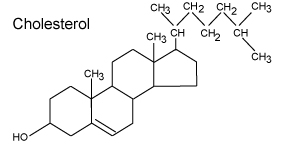 Your body uses cholesterol to manufacture bile acids, which you need for digestion, Vitamin D, which you need for your immune system to be strong, and all of your steroid hormones, including estrogen, testosterone and cortisol. Cholesterol can act as an anti-oxidant, protecting your body from cancer.
Your body uses cholesterol to manufacture bile acids, which you need for digestion, Vitamin D, which you need for your immune system to be strong, and all of your steroid hormones, including estrogen, testosterone and cortisol. Cholesterol can act as an anti-oxidant, protecting your body from cancer.
Cholesterol also plays a crucial role in the brain helping you to form memories and as well as conduct other important neurological functions.
Your liver makes the majority of the cholesterol that your body needs as building blocks to carry out all of these vital functions. So if your own body makes cholesterol, why are you told that high cholesterol levels are so bad for you?
The full answer to that question is quite complex. But the simple answer is: cholesterol is NOT bad for you.
The problem with high cholesterol levels in your blood is NOT that the cholesterol is going to clog your arteries and give you a heart attack or a stroke.
The problem with high cholesterol levels is that it is a SYMPTOM of another problem. The real root cause of high cholesterol levels is a problem in the body that is much more dangerous to your health and can cause many other diseases, not just atherosclerosis or heart disease.
Good vs. Bad Cholesterol
Cholesterol is an important molecule that plays a vital role throughout your body to keep it healthy. Cholesterol is produced in your liver and must be transported through the bloodstream to all the places in your body that it is needed. But cholesterol is a lipid molecule, which means it is not soluble in water. Just as oil cannot mix with water, your body must use specialized carriers called “lipoproteins” to transport cholesterol in your blood stream.
There are 3 main types of lipoproteins your body uses:
1) HDL = High Density Lipoprotein
2) LDL = Low Density Lipoprotein
3) VLDL = Very Low Density Lipoprotein (including Triglycerides & Lipoprotein(a) and others)
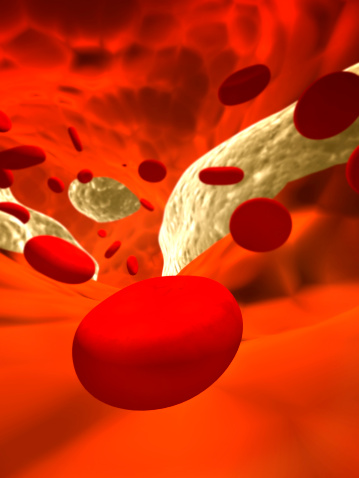 These are the terms you hear about when discussing your Total Cholesterol numbers after having your blood work done.
These are the terms you hear about when discussing your Total Cholesterol numbers after having your blood work done.
It is commonly taught that HDL is the “good” cholesterol and LDL is the “bad” cholesterol. Triglycerides are often characterized as the worst of them all. In reality, there is really no such thing as “good” cholesterol or “bad” cholesterol, any more so than there is “good” oxygen or “bad” oxygen. A cholesterol molecule is simply a cholesterol molecule.
So why does cholesterol have such a bad reputation?
HDL’s are the carriers that transport cholesterol from parts of your body back to your liver. The liver recycles the cholesterol so it can used to make new hormones, new vitamins, new cell membranes, etc.
LDL’s are the carriers that transport cholesterol from your liver out to all the parts of your body where it is needed. There it is used to repair cells and/or create new ones wherever there is cell damage.
If there is a lot of damage occurring to your cells (on your artery walls, in your digestive tract, in your muscles, in your brain, etc.), then your body mobilizes more and more cholesterol to help repair that damage.
High cholesterol levels in the blood is NOT the problem. It is a merely a natural healing response by your body to correct another underlying problem. The real root cause of the problem is the process that is creating all of the cell damage in the first place.
Why You Need Cholesterol to Be Healthy
Cholesterol is a soft, waxy substance that is found throughout your entire body, not just in your bloodstream.
Cholesterol is an important component in making up your cell membranes allowing all of your cells to maintain its shape and function.
Cholesterol is also a major building block of ALL of your steroid hormones, including estrogen, testosterone and cortisol. You body uses it to produce your bile acids for digestion and Vitamin D, which you need to be fully healthy.
Cholesterol is found in its highest concentrations in the brain and nervous system because it plays a vital role in forming your memories and other important neurological functions. Cholesterol even acts as an anti-oxidant, protecting your cell membranes from free radical damage (you will learn how important this is later…).
Your liver makes about 75% of the cholesterol your body needs to carry out all of these vital functions. But cholesterol is a lipid molecule so it is not soluble in water. Since oil and water don’t mix, your body uses specialized carriers called “lipoproteins” to transport it in your blood stream.
These are the HDL’s and the LDL’s that you hear so much about when talking about your blood cholesterol tests.
Your Total Cholesterol count in a blood test is made up of the following:
♦ HDL = High Density Lipoprotein
♦ LDL = Low Density Lipoprotein
♦ VLDL = Very Low Density Lipoprotein (including Triglycerides & Lipoprotein(a) and others)
If you’re like most people, then you’ve heard that HDL is the so-called “good cholesterol”, that LDL is the “bad cholesterol” and that triglycerides are the worst of all.
A cholesterol molecule is just a cholesterol molecule. And as I discussed before, cholesterol has a lot of important roles in keeping your body functioning optimally. HDL’s transport cholesterol from your body back to the liver. There it can be recycled into new cell membranes, new hormones, new vitamins, etc. LDL’s transport cholesterol from your liver where it can be used to repair damaged cells and create new ones wherever they are needed.
But recent studies have shown that Total Cholesterol Count is NOT a great indictor of your risk of heart disease. This is because we’ve learned that cholesterol is NOT the cause of heart disease-it’s merely a symptom. But you’ve had the number “200” ingrained in your head ever since your first blood test. Everyone knows that answer to the question if posed: “What should your cholesterol level be?” Answer: “Below 200.”
But did you know that there is no consistent and significant scientific evidence that supports the claim that a total blood cholesterol count of below 200 decreases your risk of dying from a heart attack?
In fact, did you know that there are many studies that show that the lower your total cholesterol count, the higher your risk of dying of a heart attack? Yet despite this, in 2004 the National Cholesterol Education Program panel voted to lower the recommendation for safe LDL levels from 130mg/dL to 100mg/dL without sufficient evidence supporting it. (1)
Why do you think this happened then?
Could it be that 8 of the 9 doctors that voted to make these cholesterol level changes had financial interests in companies that manufactured statin cholesterol lowering drugs? (2)
So What’s Really Happening?
The real problem isn’t that “bad cholesterol” is dangerously floating around your blood stream, maliciously looking for a place to wreak its havoc on you: lodging itself on an artery wall, blocking off the blood supply to your heart and killing you with a heart attack.
No, the truth is that high levels of cholesterol in your bloodstream are a symptom, not the cause of heart disease. Your body is circulating high amounts of cholesterol in your blood to combat another underlying problem.
Doesn’t it make sense to solve the root cause of the problem rather than trying to cover up a symptom?
The cause of heart disease is inflammation and that’s where you need to focus your efforts if you want to lower your risk of heart disease.
Where There’s Smoke, There’s Fire!
 Inflammation is a process used by the body naturally to repair damage that’s been done to your cells, tissues and organs.
Inflammation is a process used by the body naturally to repair damage that’s been done to your cells, tissues and organs.
Think of the last time you cut your finger. The cut got red, swollen and warm. This is the inflammatory process at work. Your body increases the blood flow to the area so it can clean up the damaged cells, replace them with new ones and heal your injury.
If damage occurs to your blood vessel walls, your body initiates this same inflammatory process to heal it.
As I mentioned before, one of the most functions of cholesterol is to make new cells. So it should make sense that cholesterol is released to help repair your blood vessels as quickly as possible. Your body lays down scar tissue in the form of plaques to patch up the area, just like the scar that forms on your finger when your cut heals.
If your blood vessel walls are continually being injured, then more and more scar tissue, more and more plaques are laid down. Over time, this will harden the arteries and eventually narrow the diameter of the vessel. Then less and less blood can flow through those arteries and this how heart disease develops. If the damage keeps happening, eventually the whole artery can get clogged up and this is what causes a heart attack. The problem here is the inflammation that started the plaquing process, not the cholesterol that was used to make them.
You’ve heard the expression: “Where there’s smoke, there’s fire”, right?
Well, in this case, the cholesterol is fire department and the inflammation of your arterial walls is the fire. The high level of cholesterol in your blood is merely an indicator that there is a lot of inflammatory damage being done in your body.
The cholesterol is there to help repair the damage and protect your cardiovascular system from further problems. But it can’t do its job if your body is prevented from making cholesterol by a drug.
Then the inflammatory fire rages on uncontrollably, creating more and more damage in your body. You see, the real root cause of the problem is what’s damaging the blood vessel walls in the first place, which is inflammation, not cholesterol.
Saying cholesterol causes heart disease is like saying fire fighters cause house fires. That’s just ridiculous! The fire fighters are on the scene because they were called in to help–just like cholesterol is mobilized to help repair cellular damage. But cholesterol has gotten all the focus and you’ve been told the only way to protect yourself from heart attacks is to take a pharmaceutical drug.
Statins to the Rescue?
Cholesterol lowering statin drugs are a booming industry in this country.
Nearly 22 percent of adults 45 or older take a statin drug, making this the most commonly prescribed class of medications in the U.S. (3)
In 2010 alone, 94.1 million prescriptions were filled for the generic form of cholesterol lowering statin drugs making it the #2 most prescribed drug in the U.S.
Last year, two of the top 10 best selling prescription drugs on the market were name brand cholesterol lowering statin drugs generating over $10 billion in sales (#1 Lipitor and #7 Crestor). (4,5)
As a class of drugs, statins and their related combination products generated $14.3 billion in U.S. sales in 2009, according to IMS Health.
Obviously, cholesterol lowering statin drugs are big business. But this doesn’t mean that they are safe for you or even that they are effective in protecting you from heart disease.
Do Statins Even Work?
Statin drugs block the ability of the liver enzyme 3-Hydroxy-3-Methylglutaryl Coenzyme A Reductase to make cholesterol in your body. These drugs are prescribed to lower total cholesterol counts, which according to the “Cholesterol-Clogs-Arteries” story, will prevent you from having a heart attack.
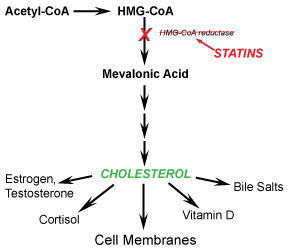 It is true that statin drugs are effective in lowering your total blood cholesterol count. Your body cannot make cholesterol because the drug is blocking its production in your liver, so of course the numbers on your blood tests will fall.
It is true that statin drugs are effective in lowering your total blood cholesterol count. Your body cannot make cholesterol because the drug is blocking its production in your liver, so of course the numbers on your blood tests will fall.
Low cholesterol levels have been associated with (6,7,8):
♦ Greater feelings of depression
♦ Higher incidences of violent behavior
♦ Increased rates of cancer
The Japanese Lipid Intervention Trial of 2002 showed that the people who lived the longest were the ones with cholesterol counts between 200-259. In addition, the group with the highest mortality rate was the one that had cholesterol levels under 160. (9)
And not only is lowering cholesterol levels in your body potentially harmful on its own, but the side effects of taking the statin drug can be even more hazardous to your health.
The most common side effects people taking cholesterol lowering statin drugs experience are muscle weakness and pain. This is because the cholesterol rich elements of your muscle fibers begin breaking down because it doesn’t have the necessary cholesterol to replenish itself.
While sore leg and back muscles might be a nuisance, don’t forget that the most important muscle of your body is your heart. You certainly don’t want to experience weakness and pain in your heart muscle.
With prolonged statin drug use, severe cases can lead to kidney damage because of the increased load of muscle proteins that are broken down needing to be eliminated from your body.
Statin drugs also severely deplete your levels of CoQ10, an important coenzyme that helps the mitochondria produce all of the energy your cells need to keep you healthy. It is especially vital to heart function and muscle health and serves as a powerful anti-oxidant.
Depletion of CoQ10 can lead to fatigue, muscle weakness, muscle soreness and even heart failure. Therefore it is crucial if you decide to continue to take a statin drug, that you supplement with CoQ10 to try to counteract these side effects.
Add to all of these problems, the list of other side effects of taking a statin drug (10,11,12,13):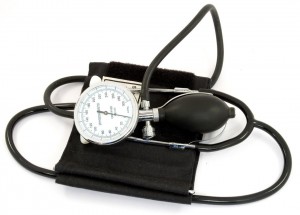
♦ Polyneuropathy
♦ Dizziness
♦ Cognitive impairment including memory loss
♦ Impotence
♦ Decreased immune function
♦ Liver dysfunction
♦ Increased rates of birth defects
♦ Increased risk of cancer
It is also important to remember that your body needs cholesterol to create all of your steroid hormones as well. So if you don’t have enough cholesterol to replenish your muscle fibers, you’re also not going to have enough to make testosterone, estrogen and cortisol. This leads to hormone imbalances and can cause a whole host of other health problems.
The Lipid Hypothesis
So why the attack on cholesterol? Why has cholesterol gotten such a bad rap?
The Framingham Heart Study performed back in the 1950’s is where Ancel Keys made the first link between dietary fat, cholesterol and coronary heart disease. (14 It is from this study that the misguided war on cholesterol began. From it, battles against saturated fat have been waged and campaigns against cholesterol have been launched. But we’ve learned so much more about heart disease since the 1950’s. Large, comprehensive follow up studies have demonstrated that high cholesterol levels and high saturated fat consumption do not increase your risk of heart disease. (15)
In addition, other recent studies show that there is no correlation between high fat dietary habits and increased blood cholesterol levels. (16)
One report by the Medical Research Council stated that groups who ate butter had half the risk of heart disease than those who ate margarine. (17)
A study by Rose et. al. in Australia demonstrated that replacing animal fats with so called “healthy fats”, Omega 6 vegetable oils actually increased mortality rates. (18)
In the Los Angeles Veterans Study where they restricted dietary saturated fat in their subjects, they found increased rates of cancer – even despite the decrease in smoking that occurred during the study. (19)
The French Paradox
In studying the French population, it turns out that despite eating twice the amount of saturated fat, the French have half the coronary heart disease deaths as in the U.S.
If the Cholesterol Myth was true then all of the cheeses, butter and cream sauces that are the mainstays of French cuisine would be giving the French just as many heart attacks as the Americans.
But they don’t. Why?
The supporters of the Lipid Hypothesis of heart disease have given a lot of press to the anti-oxidant qualities of the red wine that the French drink to explain this paradox. Resveratrol in red wine indeed is a powerful anti-oxidant and has many health benefits. But the Italians drink similar amounts of red wine and eat similar amounts of saturated fat as the French. Despite this, the Italians have higher mortality rates than the French (although they do have much lower mortality rates than Americans).
What is now believed to be a huge factor in the French Paradox is that the French eat 78% less sugar (refined sweets, processed grains, etc.) and much lower amounts of unsaturated vegetable oils (such as canola oil, soybean oil and margarine).
The Cholesterol Myth has made you believe that fat is the devil and that a low-fat diet (or even no-fat diet) is the healthiest way of eating.
A natural consequence of these low-fat diets is that you’re left still feeling hungry because you’re not getting the fat that satisfies your brain and your body.
So you tend to eat more processed grains, more vegetable oils, more high fructose corn syrups to try to fill up. All of these have a tremendous inflammatory effect on the body and this is very detrimental to your health.
Anthony Colpo states, “The only well-conducted dietary intervention studies to have produced any real decrease in coronary and overall mortality are those that involved an increase in omega-3 intake, increased anti-oxidant rich vegetable and fruit consumption, nutrient supplementation, restriction of highly-processed foods and/or weight loss.” (20)
Where does the Inflammation come from?
Damage to your arteries (and other areas of your body) is caused by many different factors, including, but not limited to:
♦ Chronic emotional stress
♦ Smoking and excess alcohol consumption
♦ Environmental pollution in our air, water and food supply
♦ Polyunsaturated (trans) fats and partially hydrogenated oils
♦ Sedentary lifestyle habits
♦ Poor nutrient intake
♦ High blood sugar levels (from eating refined carbohydrates)
Any one of these, and especially a combination of many of these factors, can cause enough inflammation in your cardiovascular system that an immune response is triggered and plaques begin to build up in your arteries.
Most people believe that the plaques made by cholesterol are formed on the interior of their arteries much like how a sink drain gets clogged with gunk that builds up on the inside of the pipe.
If this “plaquing myth” were true, then people with high cholesterol would have plaquing all throughout their body. Cholesterol would stick to the walls of the small capillaries and veins as well as the relatively big arteries of the heart.
But this doesn’t happen. Atherosclerosis, the progressive hardening of the arteries, mostly occurs in the large arteries where there is the greatest blood volume and highest blood pressure. These are the areas where there is the most stress within the arterial system and this is where the most damage occurs.
The truth is, the protective plaques build up inside the arterial wall, under the endothelial lining of the vessel. The plaques do NOT layer up in on the outside of the wall to “clog up” the artery.
This is important because it shows that atherosclerosis is an immune response to chronic inflammation damage rather than a dietary problem of fat globules ruining the plumbing.
That gross yellow substance you’ve seen being pulled out of an artery by a surgeon on the Discovery Channel isn’t what you think it is. Those “fatty streaks”, the hallmark of atherosclerotic plaquing, are not simply clumps of fat.
This mass is mostly made up of macrophages, but also include lymphocytes, leukocytes, platelets and smooth muscle cells as well.(21)
These are white blood cells or immune system cells that are mobilized to initiate a healing response. They are in the arterial wall, NOT on the arterial lining.
These macrophages have high concentrations of cholesterol in them because they are there to repair the cellular damage done by the inflammation.
The more damage that is done, the more thickening and hardening of the arterial walls that occurs. Over a prolonged period of time, an atheroma can form that can bulge into the arterial space decreasing its diameter.
If not enough blood flow can get through one of the coronary arteries that keep your heart muscle alive, you will suffer a heart attack.
How To Treat the Root Cause of Heart Disease Naturally
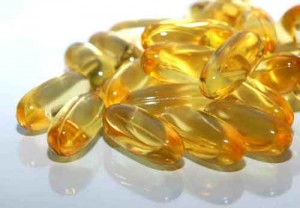 So instead of treating a “cholesterol problem” and trying to blow away the smoke, you need to address your “inflammation problem” and help put the fire out. Thankfully, there are simple and natural methods to decrease the amount of inflammation in your body, thereby decreasing your risk of heart disease. The main focus of the Heart Health regimen I recommend here is to give your body the extra help it needs in combating the free radical damage that occurs in the inflammatory process.
So instead of treating a “cholesterol problem” and trying to blow away the smoke, you need to address your “inflammation problem” and help put the fire out. Thankfully, there are simple and natural methods to decrease the amount of inflammation in your body, thereby decreasing your risk of heart disease. The main focus of the Heart Health regimen I recommend here is to give your body the extra help it needs in combating the free radical damage that occurs in the inflammatory process.
Free radicals are unpaired electrons that are highly reactive and unstable. Free radicals create damage by stealing an electron from another cell in order to balance itself out. But in doing so, it damages that cell which then tries to take an electron from some place else. This creates an ongoing chain of damage in your cells that your body eventually can’t keep up with.
Anti-oxidants provide a protective source for these hazardous free radicals to be eliminated so they don’t continue to wreak havoc on your cells, tissues and organs. Free radical damage is the underlying cause of many health problems, not just heart disease. Cancer is another disease that is often caused by excessive and uncontrolled free radicals.
The following Heart Healthy Supplement Plan will provide you with an arsenal of anti-oxidant support, allowing your body to handle the inflammatory stress it is subjected to on a daily basis.
Omega-3 Fish Oils = 1,000-2,000mg/day
Powerful anti-oxidant protection against the free radical damage from the inflammatory process, lowers triglycerides and may elevate HDL.
Organic Cassia Cinnamon = 1 teaspoon/day
Cinnamon has been shown to not only lower LDL cholesterol and triglycerides, but help balance blood glucose levels as well.
CoQ10 as Ubiquinol = 100mg/day
Another strong anti-oxidant and the enzyme that supports healthy energy production in your cells
DO NOT stop taking any prescription medications without talking to your doctor first!
Review this supplement protocol and the research behind it with your doctor. Then together you can create a plan to get off the drugs using these safe and natural remedies.
Of course, no heart healthy plan would be complete without supportive healthy lifestyle changes. Be sure to incorporate these habits as well:
♦ Eat less grains and sugar in your diet (refined white sugar, highly processed carbohydrates, etc.) This will help to lower your risk of cancer and diabetes as well
♦ Eat more healthy fats (from olive and coconut oil, avocados, raw nuts and seeds, grass fed meats and organic eggs)
♦ Quit smoking and reduce excessive alcohol intake
♦ Exercise regularly for strength, stress reduction and blood sugar balancing
♦ Manage your emotional stress more effectively
Remember, these natural supplements actually help your body heal and function better rather than simply covering up symptoms. They aren’t harmful to your health. They don’t cause the unhealthy side effects that the pharmaceutical drugs do.
BOTTOM LINE: cholesterol lowering statin drugs don’t do anything to solve the root cause of your health problem and there is evidence that they can actually make you worse or even kill you.
Now that you know the truth behind the Cholesterol Myth, don’t let it steal your health and your life away from you. Now you take your health back into your own hands and do something proactive about it.
If you are interested in learning more about the nutritional supplements I recommend and about how to choose the brands you buy, click here to get the guide: 7 Things You Should Know Before Buying a Nutritional Supplement.
References
